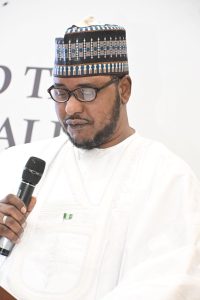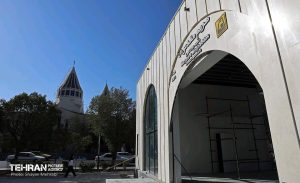
It’s a fact, that right from the establishment of the Nigerian Communication Commission the body has never lacked vision nor run short of strategy to properly superintend the telecommunication industry. This has, in turn, earned the NCC a reputation as a foremost Telecom regulatory agency in Africa.
The Commission is utilising ICT for a different aspect of national development initiating several programmes such as State Accelerated Broadband Initiative (SABI) and Wire Nigeria Project (WIN) to help stimulate demand and accelerate the uptake of ICT tools and services necessary for the enthronement of a knowledgeable society.
In order to achieve its mandate, the Commission has put in place the necessary licensing and the regulatory framework for the supply of telecommunications services, this is in spite of the myriad of challenges striving hard to pull spoil the good work The commission is recording. Thus, it can be taken for granted that the Commission as spearheaded by the acclaimed Professor of telecommunications, Umar Garba Danbatta will surmount all its challenges and take the industry to its Eldorado.
Time and space would not permit the enumeration of the unassailable achievements of the Nigerian Communication Commission under the able leadership of Prof. Umar Garba Danbatta but time and space would surely allow room for the impact the Danbatta and NCC by extension is making by way of carrying the consumers along, the wonders done through broadband penetration and a host of other achievements.
Carrying the consumers along
From the day he assumed office to the issues he chooses to pay attention to and the kind of work he gets done on a typical day at work one thing is clear, the greatest desire of Prof. Umar Garba Danbatta is to make sure that the customer experience of the average Nigerian is better than it has been before. To him and by extension the NCC the consumer is one of the key stakeholders in the stakeholder ladder of the NCC with a base of over 154 million subscribers. That is not to mention the fact that, the Nigerian subscribers dominate the African telecommunication landscape, provide the revenue that Telecoms need to keep going while increasing the overall revenue earning of everyone including the country.

One of the mandates of the NCC is to monitor the quality of service provided by telecommunications companies and ensure they conform to acceptable standards. Among other things, the Commission is very passionate about caring for the welfare of the consumer hence it is willing to go the whole hug to ensure the consumer gets value for money.
As an astute administrator and professional, Prof. Umar Garba Danbatta is well aware of the fact that it is the customers that have made all the success stories the Commission delightfully tell the world. Thus one of the areas the Commission has recorded giant strides is by carrying the consumers along.
In his bid to place the Commission on a sound footing and ensuring he carried the consumers along, Prof. Umar Garba Danbatta, the Executive Vice Chairman wasted no time On assumption of office in unveiling his strategic vision for years 2015 – 2020 in an 8-point agenda designed to promote innovation, investment, competition and Consumer empowerment.
In a speech he delivered at the 77th Edition of Telecom Consumer Parliament Danbatta detailed what the agenda entails this way:
“These 8-point pillars rest on a tripod of “As”, which include Availability of Service, Accessibility of Service and Affordability of service. As can be deduced, the agenda is solely directed at ensuring that the Consumer is optimally satisfied with the services being provided. Three of the eight points are specifically focused on the Consumer, viz:
To improve quality of service (QoS) by promoting the availability of reliable, interoperable, rapidly restorable critical information and communications technology infrastructure that is supportive of all required services;
To facilitate strategic collaboration and partnership with relevant stakeholders that will foster ICT for sustainable economic development and social advancement;
To protect and empower Consumers from unfair practices through the availability of information and education required to make informed choices in the use of ICT services.
The remaining agenda items, viz, (4) Facilitate broadband penetration, (5) Optimize usage and benefits of spectrum, (6) Promote ICT innovation and investment opportunities, (7) Promote fair competition and inclusive growth and (8) Ensure regulatory excellence and operational efficiency, are all designed for the ultimate benefit of the Consumer.”

As a testament to carrying the consumer along, the Commission also heard the complaints of consumers and responded by issuing directives to all Mobile Network Operators mandating them to dedicate a shortcode, 2442, on their networks for use by subscribers to opt-in to “Do-Not-Disturb” database to register their numbers against unsolicited messages. This directive has since taken effect and consumers are now better for it.
The need to carry the consumer along also brought about a management decision that compelled the Commission to amplify its activities towards ensuring that the consumer enjoys a customer experience that is enhanced and consistent in time and quality.
To ensure consumers are not taken for granted the NCC has invested heavily in informing and educating the consumer with the sole interest of protecting and empowering them to make the right decisions.

The Commission has since been in the business of providing unique and timely information to empower the consumer; engaging stakeholders in a constructive way to ensure that they work with NCC; ensuring the quality of service across board; increasing the level of awareness and activation of the 2442 Do Not Disturb Service and educating the consumer about the environmental and health impact of telecom infrastructure and type of funds approved for use.
The need to carry the consumer along led to the introduction of the 2017 year of the consumer with the introduction of innovative solutions, the 2442 Do Not Disturb Service, the 6222 toll-free complaint line, the quality of service across board all designed to put the consumer in charge.
Broadband penetration
Given the importance the Nigerian Communications Commission attached to carrying telecoms Consumers along. It has sufficiently put in place several other measures that will ensure that Service Providers meet the needs of the public. From the actions and inactions of Prof. Umar Garba Danbatta stakeholders in the industry are aware of his tireless efforts at putting in place various strategies and policies that would enable the Nigerian Communications Commission to make operators toe the line of acceptable practices as obtainable anywhere in the world.
The National Broadband Plan (2013-2018) had envisaged 30 per cent broadband penetration by December 2018. It was measly at 8 per cent in 2015. But luck was on the side of Nigeria and Nigerians when President Muhammadu Buhari by a stroke of luck picked Prof. Umar Garba Danbatta for the job.
According to documents released by the Nigerian Communication Commission detailing how the Commission achieved and surpassed the broadband penetration target it set for itself, the report stated that in November 2018, there were 168,729,005 mobile “GSM” mobile subscribers in the country, of which 108,457,051 were subscribed to Internet access services provided by the major operators. In terms of broadband services, a total of 58,965,478 connected to the Internet through 3G and 4G networks (including those provided by the LTE-only service providers such as Smile and nTel).
NCC disclosed that this distinction was critical because Nigerians predominantly rely on mobile networks for Internet access, including broadband networks since the fixed broadband access, which would have been led by NITEL, is now non-existent. It further explained that broadband penetration is typically measured by the percentage of the total population with access to broadband networks out of every hundred.
So if the total active broadband subscription figure of 58,965,478 is divided by a population of 190,886,311 (using United Nations (UN’s) projection of December 2017), that comes to 30.9 per cent penetration. Although issues could be raised about using the UN figure as baseline, the Commission resort to the use of this figure because is the most consistent and reliable since that appears to be the baseline used by the International Telecommunications Union (ITU) in earlier studies.
NCC explained that if it had used the Nigerian Population Commission (NPC)’s 2006 figure of 140 million, the penetration rate would have been 42.1 per cent, which would have been unrealistic and disputed. Thus its assertion that Nigeria attained 30.9 per cent broadband penetration is logical and supported by available data which are available for verification.

Addressing naysayers who believe the NCC was only cooing up figures the Prof cleared the air this way:
“We have achieved and surpassed the target to 30.9% and this fact is based on computation conducted in-house, by the Department of Policy and Economic Analysis.
“It is a computation that is available for anybody with access to data. So, what we did was, that we summoned up the 3G subscription for Broadband, as well as the 4G subscription and divided it by the population figure of this country. This time around we didn’t use the 2006 population figures because we wanted whatever we compute totally with the ITU, UNESCO Broadband Commission for Sustainable Development is doing or has been doing when it comes to broadband penetration.
“That is why, when we use the current figure of 190 million plus, which is a figure also endorsed by the National Population Commission, we feel the target we obtained through this computation is a reflection of the level of Broadband Penetration in the country.
“That was how we came up with that 30.9%, so we have exceeded the target, as stipulated in the National Broadband Plan, by 0.9%. it is no small achievement for us. Because then, we can all prepare very well as we have prepared before to meet the next target, which is yet to be set. But we can realistically look at it at the level of Executive Management and we can agree on what our target will be and make our recommendation to our supervising ministry.
“But I have a feeling that achieving 50% in the next 5 years won’t be a tall order; this, of course, will be subject to deliberation amongst Management of the Ministry and the Committee that is reviewing the National Broadband Plan. So, a new target for broadband penetration will be up for review by the committee for the National Broadband Plan.
“What this means is that in terms population and figure, close to 60 million Nigerians have access to high-speed internet. There is the need to define what we mean by speed internet as provided in the National Broadband Plan, which is a speed of 1.5mbps (megabits per second), that should be achievable everywhere in the country. And it speaks of the pervasiveness of the broadband services in Lagos, Port Harcourt and all over the country.”
Others achievements
Undoubtedly, there is more to the magic wand waved by Danbatta with regards to the attainment of the broadband penetration target. He has equally recorded unprecedented feat of efficient management of capital and human resource. The following are some of the achievements time and space would allow:
Re-planning of the 800 MHz band for LTE and assigning of 2×10 MHz Spectrum to Glomobile for trial in the 700 MHz and regularization of 2×10 MHz Spectrum in the 700 MHz band previously assigned to MTN by NBC for the purpose of providing LTE services, to opening up 70/80 GHz band for both last mile and backhaul services, among other numerous spectrum managements.
Auction of six slots of 2x5MHz in the 2.6 GHz Band, to re-planning of the 800 MHz band for LTE, and to assigning of 2×10 MHz Spectrum to Glomobile for trial in the 700 MHz
Regularization of 2×10 MHz Spectrum in the 700 MHz band previously assigned to MTN by NBC for the purpose of providing LTE services, to opening up 70/80 GHz band for both last mile and backhaul services, among other numerous spectrum management, the impacts cannot be gainsaid.
Publication of Spectrum Trading Guidelines
Licensing of 6 infrastructure companies (Infracos) to drive the deployment of infrastructure across the nation’s geographical zones and Lagos—while the remaining one is being processed
Dedication of the year 2017 as the Year of the Consumer of the industry with all its attendant benefits
Checking the menace of unsolicited telemarketing vie the introduction of the Do-Not-Disturb-code with no fewer than 16.5 million joining the platform
Issuance of a directive to service providers on Data Roll-Over, enabling consumers to roll over unused data for a period of time, ranging from 1 day to 7 days, depending on the data plan, among other consumer- centric directives.
Revolutionising stakeholder engagement that led to the unsealing of 47 base stations by Governor Ibikunle Amosun of Ogun State, Kano State where over 200 million was waived on levies and Kogi State where 120 base station sites were reopened
Strategic collaboration and Memorandum of Understanding (MoU) signed by Danbatta and Governor of Central Bank of Nigeria, Mr Godwin Emefiele, with a view to boosting mobile money service penetration and deepen financial inclusion in the country to 80% by 2020.
Saving a major service provider, 9mobile, from imminent collapse thus saving thousands of jobs
Mandatory adherence to the Commission’s Code of Corporate Governance for the telecoms industry
There is no gainsaying that under the year in review, Prof. Umar Garba Danbatta, the Commission has demonstrated a high sense of patriotism and professionalism in the discharge of his duties and responsibilities as spelt out for him as the Executive Vice Chairman of the Nigerian Communication Commission, the foremost Telecommunication regulatory agency in Africa. Danbatta has acted responsibly, impartially, transparently and independently in the discharge of its statutory functions. He has engendered an information-rich environment thanks to broadband penetration made possible by his tireless effort.

Everyone who has one or two dealings with him will attest to this fact, that he acts with integrity, excellence, responsiveness and above all with a special kind of innovativeness that has seen the country’s gross domestic product surging to greater heights.
REVISITING THE NCC’S 8-POINT AGENDA
One of the revolutionary moves taken by Prof. Umar Garba Danbatta and his team was the unveiling of the 8-Point Agenda. This framework was designed to effectively confront any challenge that was militating against the Commission’s visible contribution to actively facilitate the development of a knowledge-driven, inclusive, globally competitive and prosperous Nigeria.
- Facilitate Broadband Penetration
Vision: Provide and optimize access to and use of affordable fixed and mobile broadband everywhere in Nigeria.
Strategy: Facilitate and support availability of broadband services by promoting deployment of universally available, fast and reliable network infrastructure that will stimulate seamless broadband penetration to drive technology innovations and overall productivity of the economy.
- Improve Quality of Service
Vision: Promote the availability of reliable, interoperable, rapidly restorable critical information and communications technology infrastructure that are supportive of all required services.
Strategy: Strengthen measures for Quality of Service (QoS) regulation, through improved oversight/internal controls and facilitation of active infrastructure sharing amongst telecoms operators in ways that will encourage seamless adoption of next generation technologies and remove all barriers to smooth operations.
- Optimize Usage and Benefits of Spectrum
Vision: Maximize the availability of spectrum in order to provide diverse and affordable ICT services and ensure spectrum acquisition does not distort market competition.
Strategy: Develop and implement flexible, market-oriented spectrum regulation policies that promote highly efficient use of spectrum in ways that stimulate innovation, investment, and job creation and increased consumer benefits.
- Promote ICT Innovation and Investment Opportunities
Vision: Promote ICT innovation in ways that improve the nation’s ability to compete in the global economy, through increased investment in youth and promotion of SMEs for the delivery of new business breakthrough.
Strategy: Facilitate and support the deployment and use of broadband networks as a platform for economic growth, innovation, job-creation, and global competitiveness by fostering increased strategic support for technology startups and SMEs.
- Facilitate Strategic Collaboration and Partnership
Vision: Develop effective partnership with relevant stakeholders to foster ICT for sustainable economic development and social advancement.
Strategy: Foster avenue for synergy with government MDAs, Communities and relevant local and international non-state actors to advance the use of ICT for Development (ICT4Dev) by facilitating and supporting the development, adoption and usage of technology innovations for improvement in Agriculture, Healthcare, Education and Security.
- Protect and Empower Consumers
Vision: Protect consumers from unfair practices through availability of information and education required to make informed choices in the use of ICT services.
Strategy: Strengthen initiatives to educate and inform consumers in their use of communications services and act swiftly and consistently whenever necessary in the use of enforcement to protect telecom services consumers’ rights and privileges.
- Promote Fair Competition and Inclusive growth
Vision: Ensure a competitive market for communications services that fosters fair inclusion of all actors, in innovative ways that facilitate new investment, job creation and consumer satisfaction.
Strategy: Foster the assurance of fair competition through regulations that ensure strict compliance to obligations imposed on dominant operators in ways that stimulate the growth and sustainability of smaller players in the Mainstream, Value Added Services and Ancillary services sectors of the telecom service provision ecosystem.
- Ensure Regulatory Excellence and Operational Efficiency
Vision: Ensure an effective regulatory framework, efficient processes, strict compliance monitoring and enforcement, efficient management of internal resources and structure, and maintain a commitment to transparency.
Strategy: Strengthen regulatory and operational systems and processes in ways that make them more result-oriented by further internalizing the Commission’s rules, culture and values, and integrating technology where necessary to improve efficiency, effectiveness and stakeholder satisfaction.
For the Nigeria Communication Commission as spearheaded by Prof. Umar Garba Danbatta, the telecommunications industry is pivotal to the overall development of Nigeria and this is in tandem with the change agenda of President Muhammadu Buhari Administration.
By: Collins Imoudu Andrew
Murya Magazine
Discover more from TOKTOK9JA MEDIA
Subscribe to get the latest posts sent to your email.



























